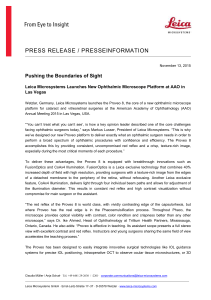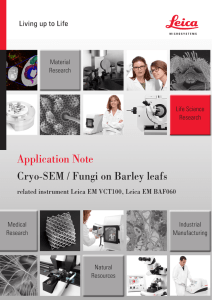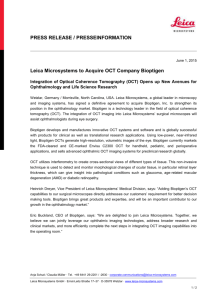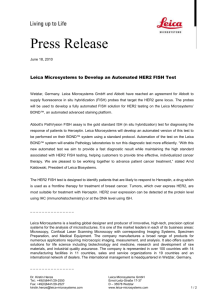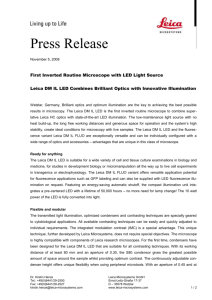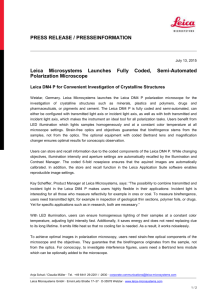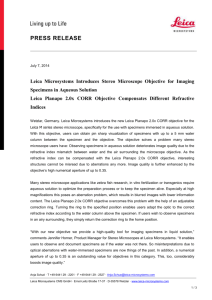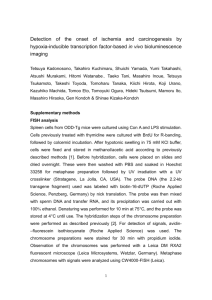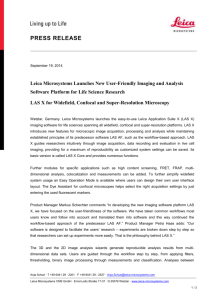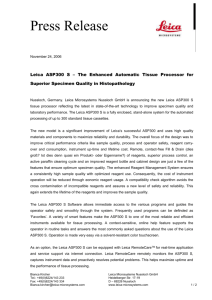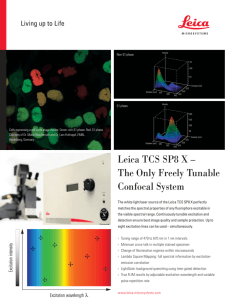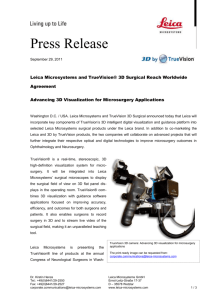111128_PR_Leica_ChromoPlex_en_04
advertisement
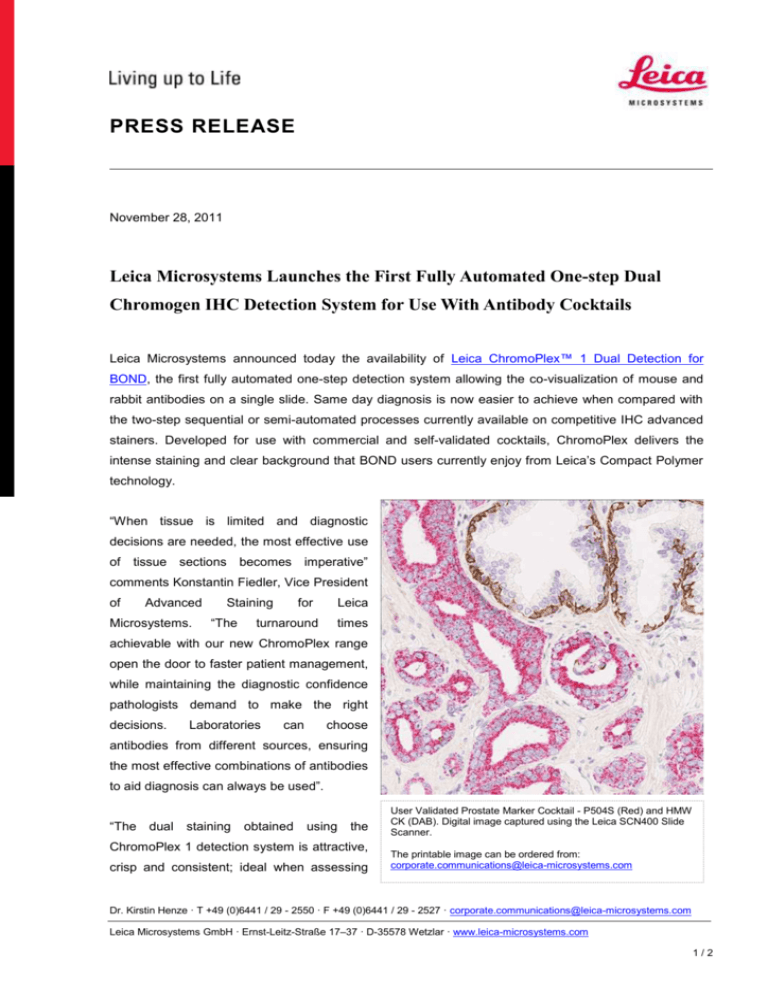
PRESS RELEASE November 28, 2011 Leica Microsystems Launches the First Fully Automated One-step Dual Chromogen IHC Detection System for Use With Antibody Cocktails Leica Microsystems announced today the availability of Leica ChromoPlex™ 1 Dual Detection for BOND, the first fully automated one-step detection system allowing the co-visualization of mouse and rabbit antibodies on a single slide. Same day diagnosis is now easier to achieve when compared with the two-step sequential or semi-automated processes currently available on competitive IHC advanced stainers. Developed for use with commercial and self-validated cocktails, ChromoPlex delivers the intense staining and clear background that BOND users currently enjoy from Leica’s Compact Polymer technology. “When tissue is limited and diagnostic decisions are needed, the most effective use of tissue sections becomes imperative” comments Konstantin Fiedler, Vice President of Advanced Microsystems. Staining “The for turnaround Leica times achievable with our new ChromoPlex range open the door to faster patient management, while maintaining the diagnostic confidence pathologists demand to make the right decisions. Laboratories can choose antibodies from different sources, ensuring the most effective combinations of antibodies to aid diagnosis can always be used”. “The dual staining obtained using the ChromoPlex 1 detection system is attractive, crisp and consistent; ideal when assessing User Validated Prostate Marker Cocktail - P504S (Red) and HMW CK (DAB). Digital image captured using the Leica SCN400 Slide Scanner. The printable image can be ordered from: corporate.communications@leica-microsystems.com Dr. Kirstin Henze · T +49 (0)6441 / 29 - 2550 · F +49 (0)6441 / 29 - 2527 · corporate.communications@leica-microsystems.com Leica Microsystems GmbH · Ernst-Leitz-Straße 17–37 · D-35578 Wetzlar · www.leica-microsystems.com 1/2 PRESS RELEASE challenging prostatic biopsies,” states Dr Geoffrey Hulman MD FRCPath, Consultant Histopathologist at Nottingham University Hospitals NHS Trust, where the detection technology was evaluated in cooperation with the Nottingham Health Science Biobank. Dr Claire Hawkes PhD, CSci comments that “historically, we encountered problems with dual staining and efforts to stain up commercial cocktails have been largely unsuccessful. The ChromoPlex 1 detection system, however, enables quick easy staining of both commercial and in-house home-brew cocktails, with excellent results.” ChromoPlex 1 Dual Detection is a biotin-free, polymeric horseradish peroxidase (HRP)-linker and polymeric alkaline phosphatase (AP)-linker antibody conjugate system for the detection of tissue-bound mouse and rabbit IgG primary antibodies. The small multifunctional linkers enhance tissue penetration, producing high sensitivity. The excellent contrast between the Fast Red and DAB chromogens allows for easy antigen differentiation. ChromoPlex 1 Dual Detection for BOND is intended for staining sections of formalin fixed, paraffinembedded tissue for use on Leica BOND-MAX and BOND-III automated IHC staining systems. It can be used simultaneously with both Novocastra BOND Polymer Refine and Polymer Refine Red Detection, allowing unparalleled flexibility in staining protocols and workflow efficiency. ChromoPlex 1 Dual Detection for BOND will be available for sale from December 1, 2011 in the United States of America, Canada, and the European Union. _______________ Leica Microsystems is a world leader in microscopes and scientific instruments. Founded as a family business in the nineteenth century, the company’s history was marked by unparalleled innovation on its way to becoming a global enterprise. Its historically close cooperation with the scientific community is the key to Leica Microsystems’ tradition of innovation, which draws on users’ ideas and creates solutions tailored to their requirements. At the global level, Leica Microsystems is organized in four divisions, all of which are among the leaders in their respective fields: the Life Science Division, Industry Division, Biosystems Division and Medical Division. Leica Microsystems’ Biosystems Division, also known as Leica Biosystems, offers histopathology laboratories the most extensive product range with appropriate products for each work step in histology and for a high level of productivity in the working processes of the entire laboratory. The company is represented in over 100 countries with 12 manufacturing facilities in 7 countries, sales and service organizations in 19 countries and an international network of dealers. The company is headquartered in Wetzlar, Germany. 2/2
